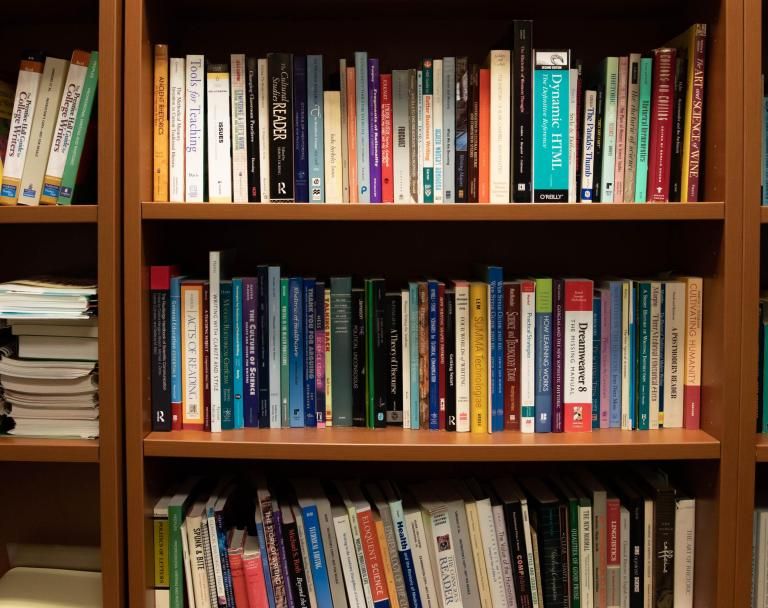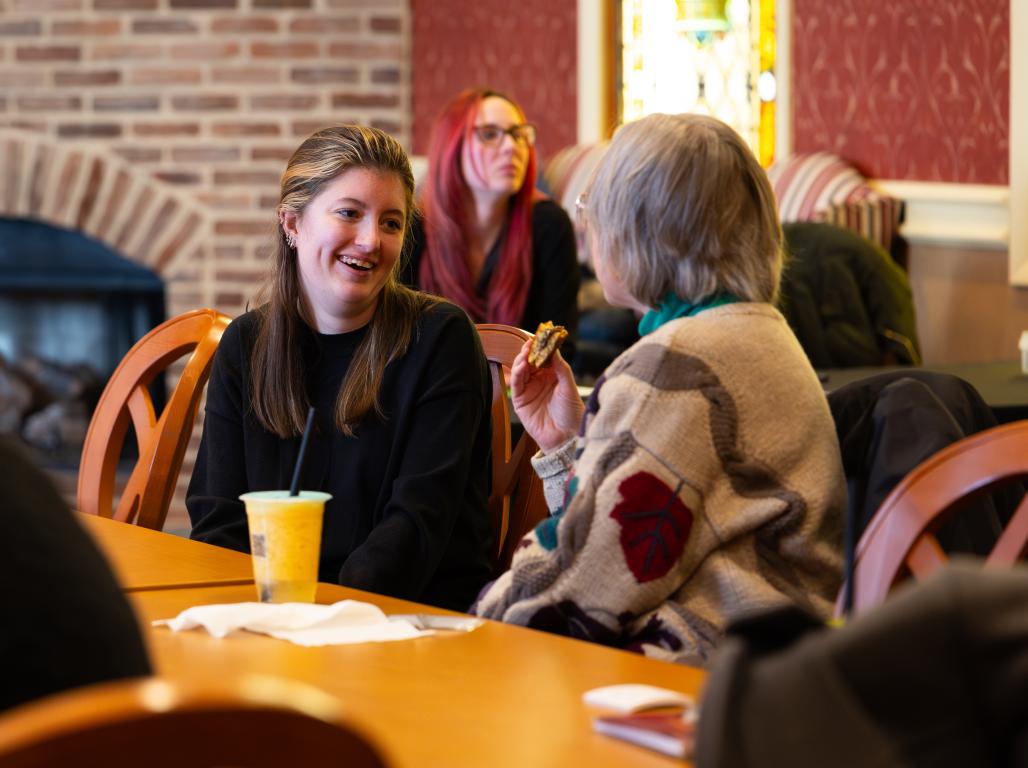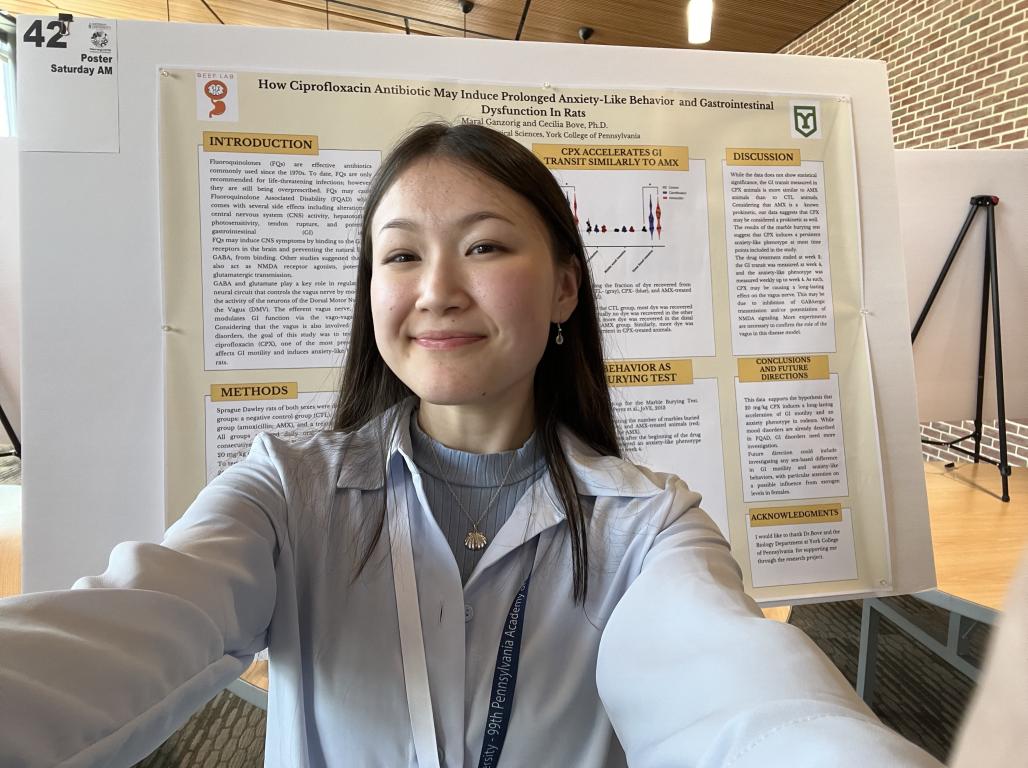Dr. Jacqueline Beatty brings together gender studies and American history in her teaching and her writing.
York College of Pennsylvania Assistant Professor of History Dr. Jacqueline Beatty’s first book, In Dependence: Women and the Patriarchal State in Revolutionary America, looks back on an era after the American Revolution and leading up to the dawn of the women’s suffrage movement before the Civil War. Dr. Beatty explores the status of women during that period by examining court petitions seeking assistance or protection at a time when women were not afforded many basic rights. The book will be released in April 2023; preorders are being taken.
The roots of an idea
“I’ve been interested in the Revolutionary War era since elementary school,” Dr. Beatty says. “Growing up in the Philadelphia area, it was always around me. Then, as an undergrad, I had a seminar on women in the American Revolution. I fell in love with it and never looked back.”
The concept for the book grew from Dr. Beatty’s doctoral dissertation, which she completed in 2016. In 2017, her dissertation was a finalist for the Society for Historians of the Early American Republic (SHEAR) manuscript prize.
Around the time Dr. Beatty began considering ideas for her dissertation, she discovered a trove of petitions that women in the late 18th and early 19th centuries had presented to the courts. She was fascinated by the voices of the women who filed the petitions, who spanned race and socioeconomic status, many of whom might have been illiterate.
“A lot of the women I write about in the book might otherwise be lost to historical record,” she says. “It’s really interesting to be able to hear in their voice what they experienced when writing these petitions, what they expected the state to do for them.”
Dr. Beatty’s goal is to explore how the American Revolution played an important early role in launching the women’s rights movement. While the petitions highlight a search for relief in the areas of widows’ pensions, divorce, and financial help, the collective drive for women’s rights wouldn’t be far behind.
“What women are doing here is empowering,” she says, “even if it’s reinforcing the language of dependence. They lived in an incredibly hierarchical, patriarchal world in which the structures of power didn't leave them much wiggle room for activism or resistance. So, we have to think outside the box in analyzing their rhetoric.”
Telling women’s stories
To complete the book, Dr. Beatty, who joined York College in 2018, received funding from the York College Faculty Development Committee. She was able to travel to the archives she had delved into in graduate school to conduct further research. That opportunity helped her develop a chapter about the experiences of Black women who petitioned the state.
When the COVID-19 pandemic hit in 2020 and Dr. Beatty no longer could travel to the archives in Philadelphia, she used the grant money to purchase a microfilm machine and continue her research from home.
“I hope it makes some sort of impact,” Dr. Beatty says of her book. “Being able to tell these women’s stories is important.”
A new chapter
After several years of pushing this project toward publication, Dr. Beatty is ready to close the door on this chapter and has been exploring what’s next and other ways to share her findings.
In September 2022, C-SPAN filmed Dr. Beatty’s classroom as she lectured on women’s political power in early America for its Lectures in History series. She is a consultant for a forthcoming exhibit for Revolutionary Spaces in Boston that will highlight some of the petitions she studied. Dr. Beatty is active in SHEAR (Society of Historians of the Early American Republic) and is the advisor for York College’s new History Club.
In all her endeavors, Dr. Beatty keeps coming back to the importance of studying history and the humanities to understand not just the past but the present and the future.
“Being a historian in unprecedented times feels like holding a crystal ball and no one listens to you,” she says. “I think we can provide a lot of understanding about our present if folks want to listen.”
She encourages students to study the humanities if that’s their interest, even when they can’t see a direct path to employment.
“I think what we teach in humanities is critical thinking, clear communication, and how to be confident in what they do,” she says. “Study what you’re interested in and what compels you—what you’re good at but also what you’re called to be. College is a place to figure that out rather than coming in assuming you’ve got it figured out.”




